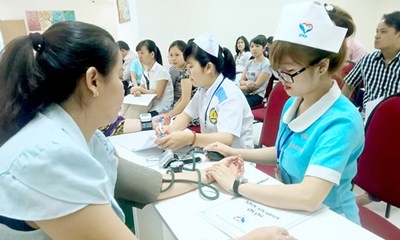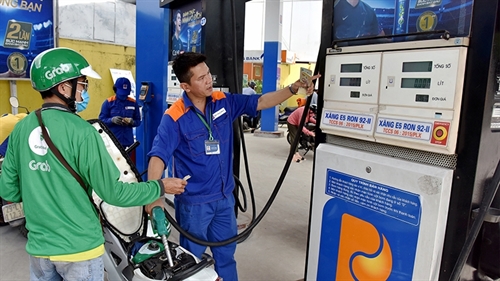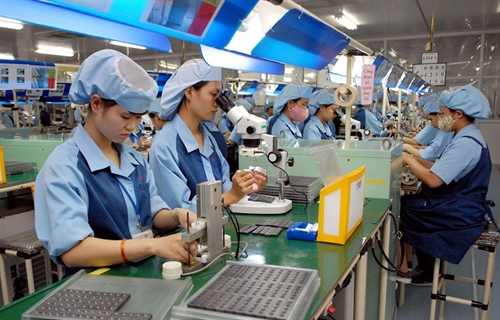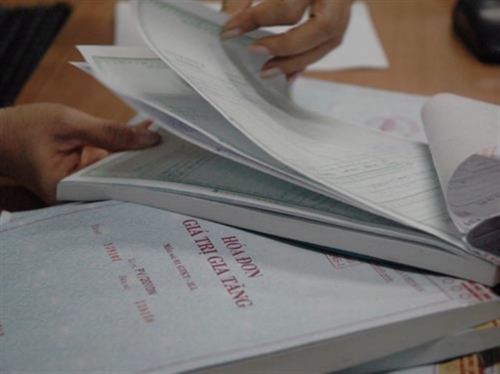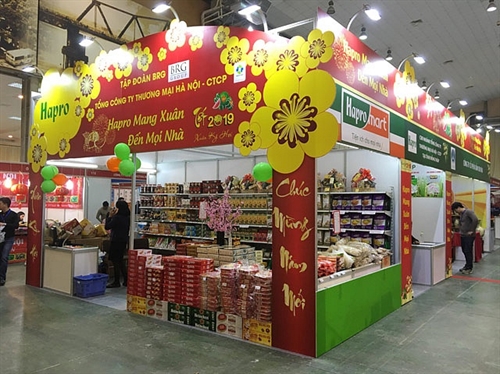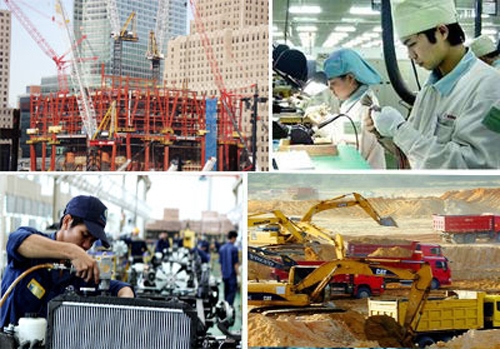The Ministry of Natural Resources and Environment (MONRE) has proposed a draft law revising the 2014 Law on Environment Protection which is expected to reduce administrative procedures without affecting the environmental protection management, and add provisions on environmental protection associated with sustainable development.
With 177 articles arranged in 17 chapters, the draft law keeps unchanged 30 articles, annuls 47 ones, revises 78 others and adds 57 new ones compared to the 2014 Law.
Reducing entities subject to strategic environmental assessment (SEA), the draft would not require strategies and plans to have SEA reports. Only master plans would be subject to SEA reports to conform to the planning law.
The MONRE would be assigned to appraise SEA reports of master plans. For those involving national defense and security secrets, the Ministries of National Defense and Public Security would be in charge of appraising.
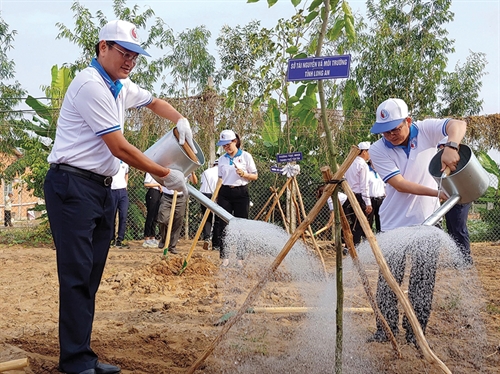 |
| Planting trees at Can Dot junior secondary school, Long An province__Photo: VNA |
The provisions concerning environmental impact assessment (EIA) would also be revised to be consistent with the law on public investment. Accordingly, EIA reports would be required for new construction investment projects with waste treatment facilities and other projects that are likely to affect the environment. Meanwhile, projects applying the best available techniques (BAT) and the best environmental practices (BEP) would receive preferential treatment. Specifically, BAT projects would not be subject to EIA reports and BEP projects would have their EIA reports appraised in a simplified manner.
The draft annuls procedures for approving EIA reports and revises appraisal regulations. Accordingly, project owners would formulate and take responsibility before law for EIA reports. Appraising agencies only approve appraisal results of EIA reports as a basis for competent state agencies to evaluate construction designs and grant construction permits and mineral mining licenses. Persons who decide on investment would by themselves approve environmental protection contents together with investment projects, ensuring consistency with the laws on investment and construction and international practices.
The draft also removes the requirement for environmental protection plans of projects that are unlikely to cause environmental pollution, and replaces certification of environmental protection plan with environmental permit to control waste discharge from production and business activities. According to the MONRE, environmental permit would take the place of seven current permits, certificates and registration regarding environment and wastewater discharge, including certificate of completion of environmental protection facilities, certificate of eligibility for import of discarded materials, hazardous waste treatment license, registry of owners of hazardous waste-discharging sources, exhaust discharge license, certification of environmental protection plan, and permit for wastewater discharge into water sources and the irrigation system.
The 2014 Law contained provisions regarding waste management but in an incomplete, inconsistent and impractical manner. In order to promote the recycle and reuse of wastes, the draft law revises and adds some new provisions considering wastes as one of resources. Accordingly, wastes classified for use in other production processes would become raw materials, fuels and materials for other manufacturing sectors. Ordinary solid wastes and household solid wastes would be treated in the “polluters pay” principle.
Regarding management of surrounding air environment quality, the MONRE would issue a technical guideline to produce air quality index (AQI) and guide the local air quality management planning. Provincial-level People’s Committees would be responsible for approving and implementing air quality management plans in their localities; regularly assess, monitor and publicize information on air quality; and provide warnings and prompt solutions in case of air environment pollution. Organizations and individuals causing air pollution or degradation would have to take remedies for pollution and carry out environmental rehabilitation.
The draft also additionally prescribes environmental protection tax, green procurement and preferential policies to support the production, distribution and use of environment-friendly products and services, response to climate change, and government expenditures for environmental protection.- (VLLF)
